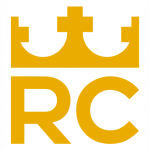

 Detail from Transfiguration by Donald Jackson with contributions from Aidan Hart, Copyright 2002, The Saint John’s Bible, Saint John’s University, Collegeville, Minnesota USA. Used by permission. All rights reserved.
Detail from Transfiguration by Donald Jackson with contributions from Aidan Hart, Copyright 2002, The Saint John’s Bible, Saint John’s University, Collegeville, Minnesota USA. Used by permission. All rights reserved.
Beginning May 1, 2025, the MA in MS has ceased admitting new students into the program. Students wishing to pursue further studies that engage theological reflection, ministerial development and spiritual growth – the unique strengths of the MA in MS – should consider Regis St. Michael’s new Master of Psychospiritual Studies (MPS), which can be pursued in three unique streams: Spiritual Care, Spiritual Direction or Social Justice Ministries. The Master of Theological Studies (MTS) may also be pursued for those wishing to deepen their understanding of the Catholic tradition.
Students must select Pastoral Praxis as their area of focus. Pastoral Praxis fosters spiritual and emotional maturity for men and women desiring effective ministerial practice and authentic witness in church and society. The program combines a MA in MS as a first theological degree with the opportunity to develop skills foundational to the art of spiritual direction. The program combines courses in theological studies with a transformative method of preparation for ministry. Candidates are expected to have considerable life experience and a high level of maturity. Candidates bring a capacity for genuine self-awareness to a reflective process of supervision. These studies take place in a context of Ignatian spirituality that invites and promotes ecumenical community, effective ministerial practice and authentic witness.
The MA in MS can be taken concurrently with the Diploma in Spiritual Direction, for which a separate application is required.
The Master of Arts in Ministry and Spirituality program, through both its academic and pastoral components seeks:
The Master of Arts in Ministry & Spirituality is a two-year, twenty-credit program that can be completed on a part-time basis. Students must follow the Pastoral Praxis Focus. All students convocate with the Master of Arts in Ministry & Spirituality. See below for specific requirements.
All students are required to maintain an electronic portfolio that documents their progress through their programs.
Religious Heritage: 9 Units
Personal and Spiritual Formation: 3 Units
Cultural Context: 4 Units
Theological Reflection on Discipleship in Ministry: 4 units
Application materials common to all certificate programs, basic degrees, and ecclesiastical degrees (see Admissions Process), plus/and more specifically: